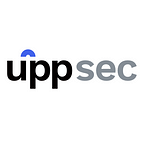Uppsala Security Presents Virtual Asset Tracking Cases and Realistic Investor Protection Alternatives at CODE’s Biannual Meeting
Singapore, May 15th 2023 — On May 11th 2023, Uppsala Security, a state-of-the-art provider of award-winning security tools and services for Crypto AML/CTF, Transaction Risk Management, Regulatory Compliance and Transaction Tracking, participated in a biannual meeting held by CODE, an exclusive Travel Rule solution company in South Korea. During the meeting, Uppsala Security presented effective alternatives for tracking virtual assets and protecting investors focused on the blockchain space.
For this meeting, CODE extended invitations to 33 Travel Rule members and 13 Associates who are part of the CODE Alliance. The purpose was to share their expertise in Travel Rule services and operational plans, as well as provide insights into the current policy trends in virtual assets and compliance with virtual asset regulations and special money laws.
During the event, notable speakers shared their insights. Jeong Seok-moon, the head of the Kobit Research Center, addressed “eight misunderstandings that require resolution within the domestic virtual asset industry.” Koo Min-woo, Korea Country Manager of Uppsala Security, presented a comprehensive analysis of virtual asset damage cases and their subsequent impact. Additionally, Ko Chul-soo, a member of Kim & Chang, discussed emerging digital asset policy trends and the responses from regulators.
Uppsala Security highlighted an important observation based on data from the Financial Services Commission: while the focus of the FIU was primarily on the status of won market operators last year, this year it is broadening its scope to include coin market operators and wallet operators. Furthermore, Uppsala Security pointed out that many Virtual Asset Service Providers (VASPs) often have misconceptions regarding virtual asset Anti-Money Laundering (AML) practices, mistakenly assuming that KYC (customer information verification) alone suffices. This reveals the need for improved monitoring standards for suspicious transactions and continuous monitoring of suspected activities. It is worth noting that failure to conduct money laundering risk assessments before listing new virtual assets can lead to substantial penalties.
In reference to the participation of domestic virtual asset services (VASPs) registered with financial authorities, Koo Min-woo, Korea Country Manager of Uppsala Security, shared that “33 out of 36 such services have become members of the CODE Alliance. As a member of this esteemed association, we are committed to fostering close business relationships and providing exclusive benefits and support to CODE’s member customers during special events.”
Additionally, Uppsala Security made a significant announcement on May 8th regarding the joint development and operation of “Protector” — a real-time blacklist wallet address detection system. This innovative solution enables the comprehensive examination, management, and immediate blocking of external wallet addresses, effectively mitigating risks associated with the deposit and withdrawal of virtual assets.
About CODE
CODE was co-founded by three Korean virtual asset exchanges (Bithumb, Coinone, Korbit), and is the sole Travel Rule consortium in Korea. It provides VASP with specialized technology solutions and customized compliance services in accordance with global Travel Rule standards that meet the requirements of the Financial Action Task Force(FATF) and regulators.
About Uppsala Security
Uppsala Security built Sentinel Protocol, the first crowdsourced Threat Intelligence Platform powered by artificial intelligence, blockchain technology, and machine learning. Supporting the framework is a team of experienced cyber security professionals who have developed an award-winning suite of advanced tools and services for Crypto AML/CFT, Transaction Risk Management (KYC/KYT), Transaction Tracking, Regulatory Compliance, and Cybersecurity enabling organizations of every type and size to protect their crypto assets from malicious attacks and scams while meeting stringent regulatory compliance standards.
